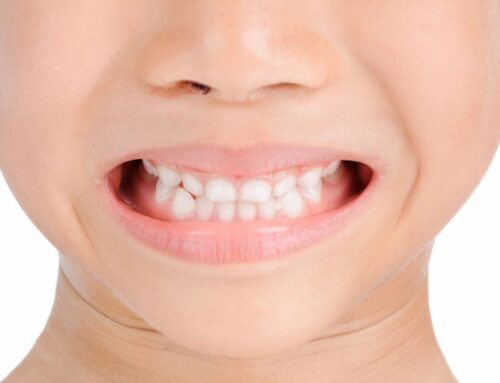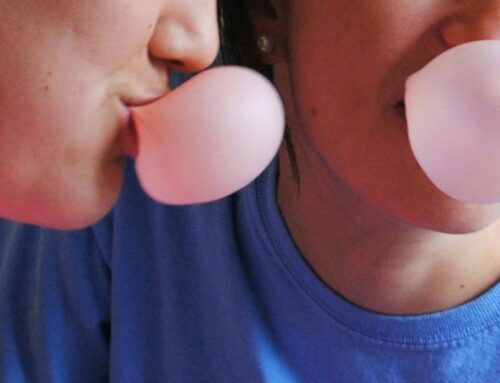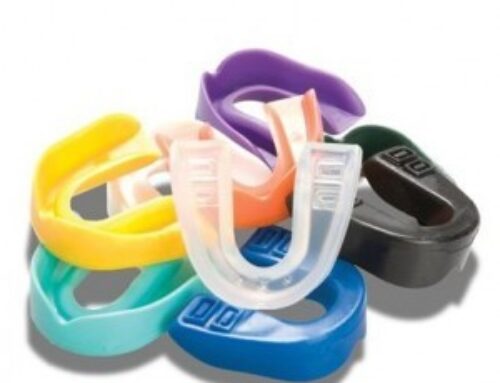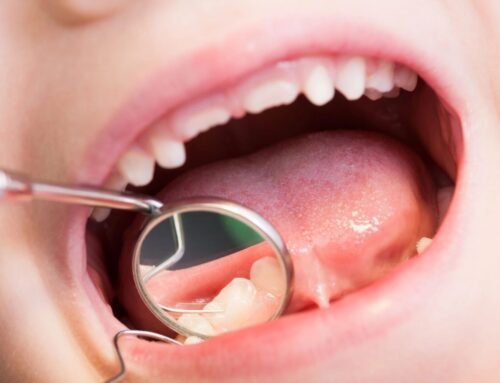Dentists like it when we all eat healthy – even babies! Breast milk is the first and only food that a baby needs for the first six months of life. It is has over 500 ingredients naturally provided in the perfect mix by the mother’s body. It changes from day to day to match a baby’s nutritional needs and helps fight off any germs that happen along!
Like any other food, bacteria like to eat breast milk, too. Bacteria start moving into a baby’s mouth right after birth. Do you remember that first time you kissed baby on the lips and gave him some of your germs? Or how about that adorable moment when baby sucked on your finger? There were germs there, too. But don’t beat yourself up about it. Just be aware that germs are waiting in your baby’s mouth to share some of that liquid gold you’re feeding him. Although breast milk has some antimicrobial qualities, it isn’t a cavity-shield, so good dental health needs to start at birth.
Around six months of age, baby’s first tooth will appear, followed quickly by others (see our previous blog on The Parade of Teeth https://brushflosssmile.com/the-parade-of-teeth/). As soon as a tooth erupts from the gum, it can start decaying in the presence of hungry bacteria! To protect your baby’s mouth, start before teeth arrive by wiping their toothless gums with a washcloth after each feeding. Once teeth can be seen, continue to use a washcloth or a very soft baby toothbrush to clean around the teeth. Water can be used until your baby is eating solids and then you can introduce training toothpaste. Always ask your child’s dentist before introducing fluoride toothpaste.
Dentists are often concerned with night-time breastfeeding for fear that milk is pooling around the teeth. Not all health professional s agree on this point, but they can all agree that breastfeeding and dental health are both important. Nighttime feedings are necessary to maintain the breastfeeding relationship of an infant. The restful hours of night, especially in the wee morning hours, is when a mother’s body tends to make the most milk. The baby must get this milk both for the baby’s health and to upkeep the mother’s milk supply (breastfeeding is a use-it or lose-it process, after all). Thus, mothers should not night-wean. But it is important to consider a night feeding just like a daytime feeding and clean baby’s mouth and teeth accordingly.
Baby’s first tooth lines up with the time that baby might be ready to start solids, at about six-months, but that doesn’t mean that breastfeeding is over. In fact, baby will still need most of his nourishment from breast milk until he is over one year old! Breastfeeding may even continue past one year, until baby and mom are ready to wean. All the benefits of breastfeeding continue into toddlerhood. There is even some evidence that breastfeeding helps jaw development so that their adult teeth will line up properly in the future.
Whether for a baby or toddler, breastfeeding is a healthy, natural food choice. Just remember that a baby’s teeth need cleaning and care no matter what the food source.
Please note: The American Academy of Pediatrics recommends breastfeeding for about 6 months, followed by continued breastfeeding as complementary foods are introduced, with continuation of breastfeeding for 1 year or longer as mutually desired by mother and infant. The World Health Organization recommends exclusive breastfeeding up to 6 months of age, with continued breastfeeding along with appropriate complementary foods up to two years of age or beyond.
References:
“Breastfeeding: An overview of the oral and general health benefits” Journal of the American Dental Association
http://jada.ada.org/content/144/2/143.full
KellyMom.com (Kelly is a doctor and breastfeeding advocate):
Special thanks to our blog writer Susan Akers!





